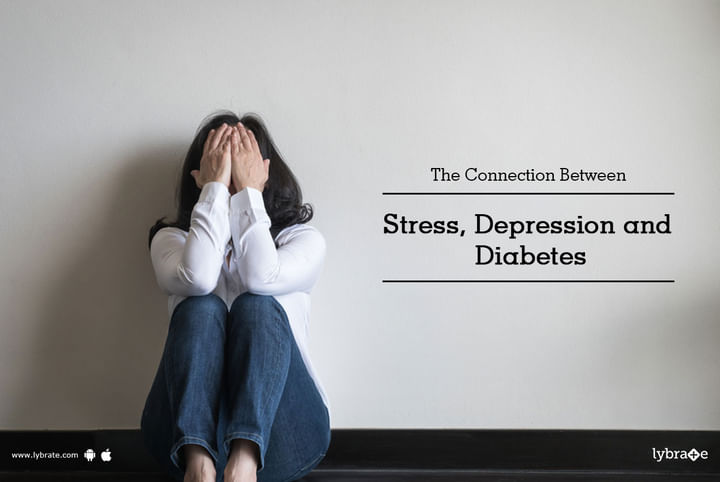The Connection Between Stress, Depression and Diabetes
Stress and depression are two problems that commonly affect diabetics and often remain unnoticed. In the same way, any kind of mental stress or depression is also associated with the increased risk of diabetes.
How stress impacts blood sugar levels?
If you are often stressed, it can interfere with the metabolism and result in an imbalance of hormones. Mental stress blocks the production of insulin which results in increased blood sugar levels. It is also observed, when people are diagnosed with diabetes, they often stress out, this can make the situation worse.
Few tips that will help in stress management are:
-
Breathing exercises
-
Relaxation therapy
-
Exercise
-
Being positive
-
Sharing your feelings
How does depression impact diabetes?
Depression increases the risk for diabetes, and diabetes increases the risk for depression. In case of depression, stress hormones such as cortisol increase, and impact blood sugar metabolism, resulting in insulin resistance and deposition of fat around the abdomen. Also, depression is known to impact your lifestyle and food choices you make.
In the same way, it has been observed, that people who suffer from diabetes are at a greater risk of having depression. It could be because diabetes causes inflammation and hormonal imbalance.
Risk factors of depression and diabetes
It seems likely that both these conditions are aggravated by the same risk factors, which include:
-
Family history of either condition
-
Inactivity
-
Coronary artery disease
Understanding the symptoms of depression in people with diabetes:
Few symptoms of diabetes and depression are same, some of which are:
-
Difficulty in concentrating
-
Fatigue, lethargy, and weakness
-
Low energy levels
-
Mood swings
-
Restlessness
In case you observe any of the above signs or have a family history of diabetes or depression, you should get yourself tested for the other condition as well.


+1.svg)
